“FOR WHAT IT’S WORTH” * THE BUFFALO SPRINGFIELD * ATCO (1967)
![]()
___
DETROIT FREE PRESS: “Who? Swingin’ Sweeney That’s Who!”
(Above WKNR ad courtesy freep.com newspapers archive. Copyright 2017; Newspapers.com).
A MCRFB Viewing Tip: On your PC? For a larger detailed view click image 2x and open to second window. Click image anytime to return to NORMAL image size.
Click your server’s back button to return to MCRFB home page.
On your mobile device? Tap on image. Open to second window. Take your index finger and thumb and “stretch” across the featured article to magnify for larger print view.
Missed any previous ‘Detroit Radio Back-Pages’ features? GO HERE.

![]()
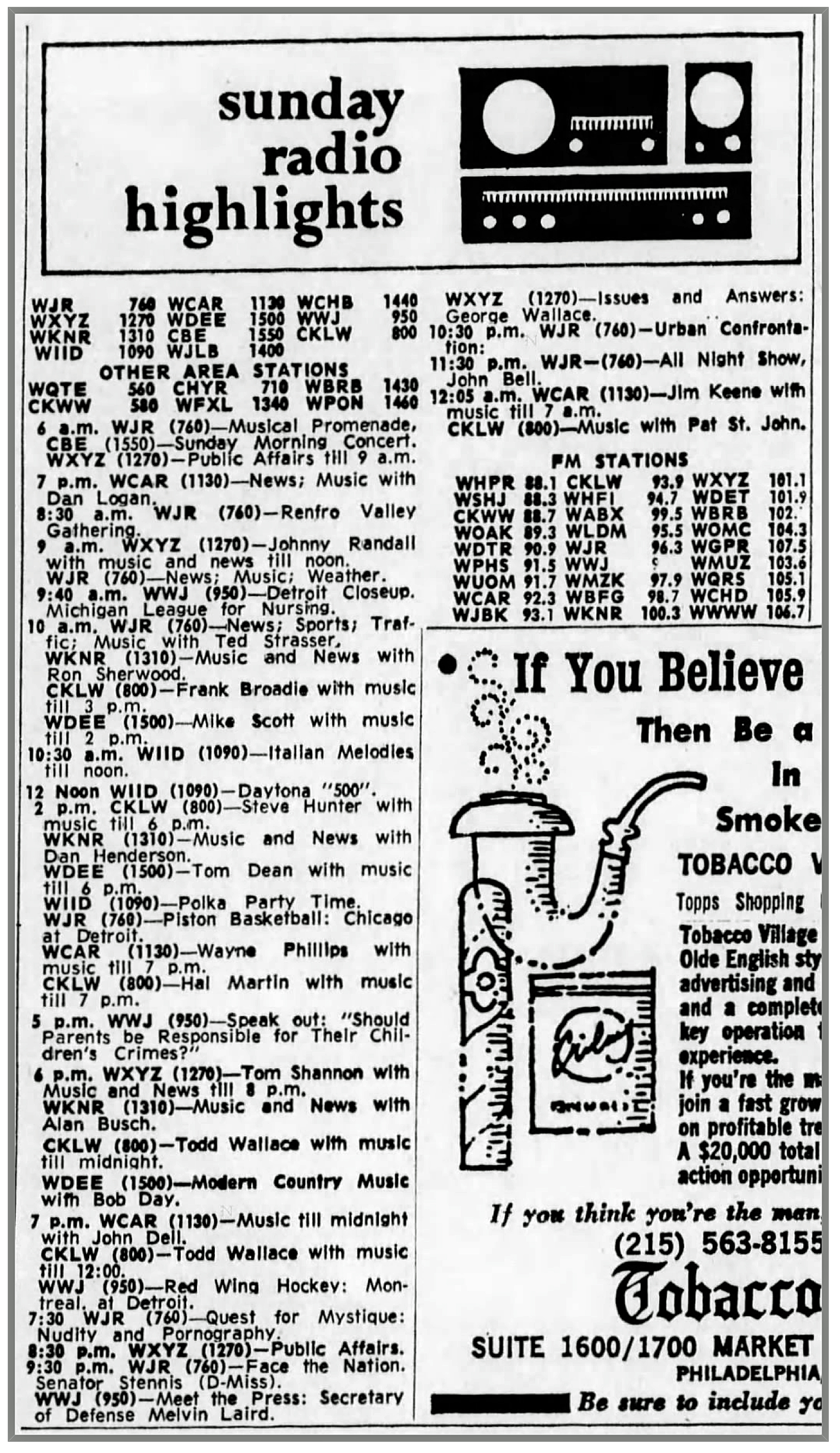
(Above article courtesy freep.com newspapers archives. Copyright 2017; Newspapers.com).
A MCRFB Viewing Tip: On your PC? For a larger detailed read CLICK ON IMAGE 2x and open to second window. Click image to return to NORMAL image size.
On your mobile device? Tap on image. Open to second window. Take your index finger and thumb and “stretch” across the featured article to magnify largest print view.
Click your server’s back button to return to MCRFB home page.
![]()
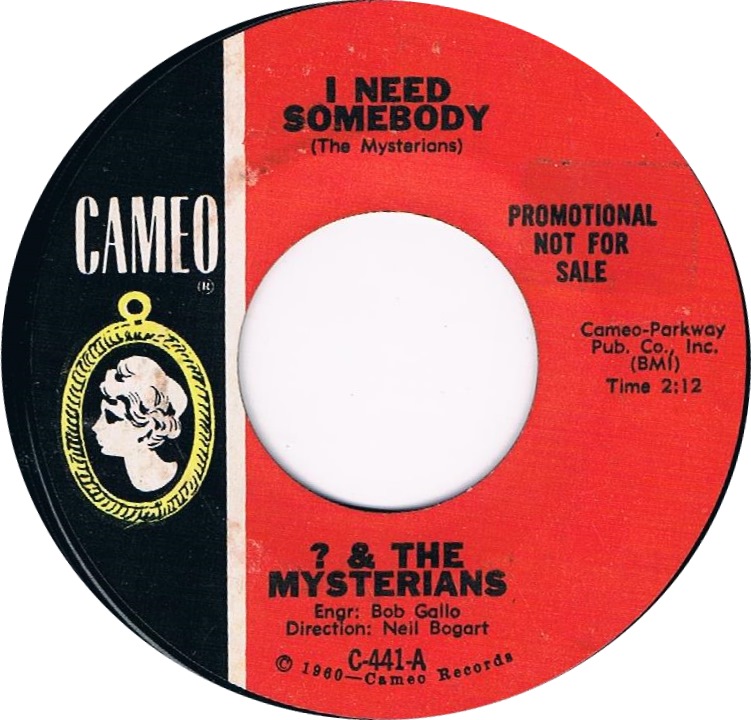
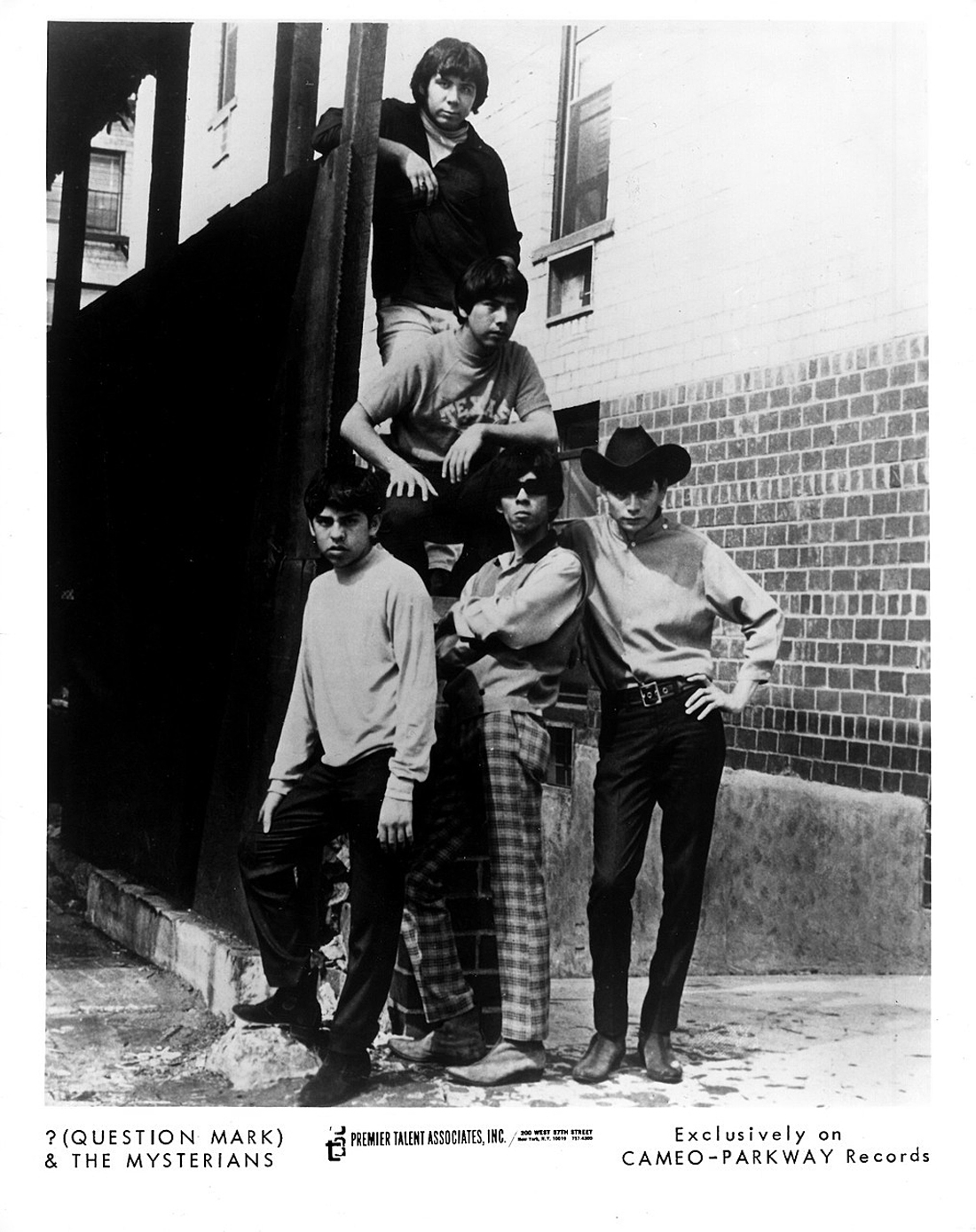
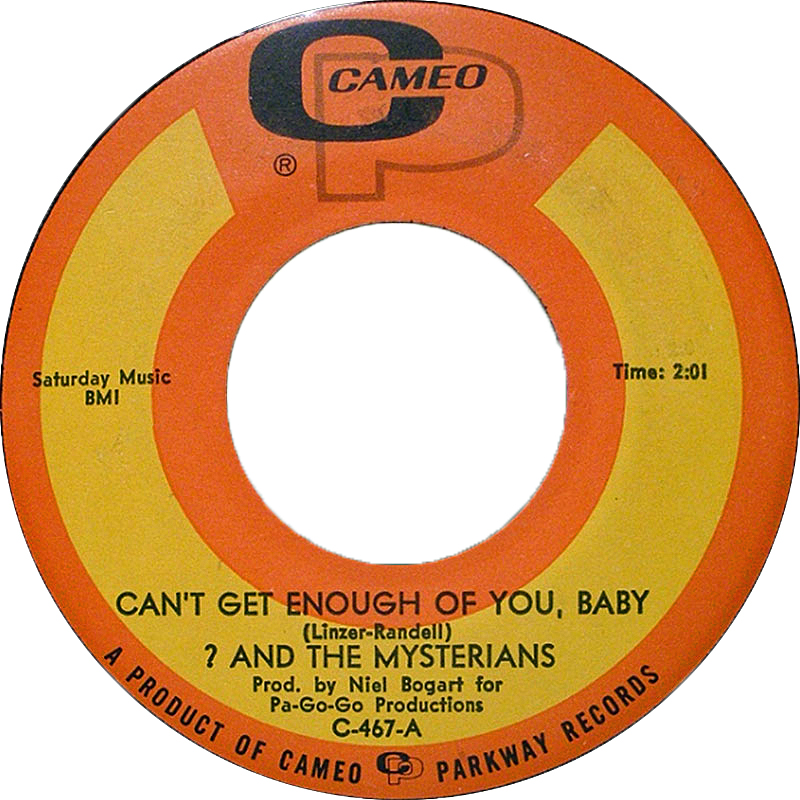
![]()
 From the MCRFB NEWS archive: 1964
From the MCRFB NEWS archive: 1964
The Bill Gavin Newsletter February 8, 1964
From the Desk of Bill Gavin Billboard Contributing Editor
IT’S FUN, SO THEY TELL ME, to be a music director. It’s the most fun when you’re with an important station in a big city. Big name stars you’ve never met phone you, call you by your first name, and speak in a manner suggesting a lasting, possibly, personal friendship. Even though your own salary is considerably less than that of any disk jockey on your station, national officers of big record companies phone you, call on you, take you to dinner and treat you as a real V.I.P. Which you are.
Even if you’re in a smaller town, you can still be important. You have a sense of power. You can break new records in your area and force the nearby big city stations to he aware of them. Promotion men come to sec you, and they let you know just how much influence you really have. You may even receive pre -release mailings of new records and get them on the air ahead of your big town colleagues. It’s exciting work.
 DISCUSSING ALL THE MEANINGLESS back slapping and phony good will that goes with record promotion, the music director is more a part of the record business than anyone else at his station. It is part of his job to know what is going on in the world of records. It’s a fascinating world of show business and it’s fun to be part of it, if only as an observer. The fun of being a music director more than compensates for the daily chore of auditing all those new releases. Those who have never faced this task for any length of time have little notion what a grinding and frustrating experience it can be. It requires many hours every day to listen all the way through both sides of every new record that arrives. Add to this the extra hours that the conscientious music director spends in listening several times to those entries that he considers important, and it makes for a pretty full week in auditioning alone. The amount of trash that must be sifted to discover the worthwhile items is horrendous. Of course, hardly any music director listens to all the sides all the way through. An unfamiliar label by an unknown artist may he tossed out unheard. The first few bars of one side may be so unacceptable that no further attention is paid to either side. And, if he gets too busy with other duties, he may put aside the remaining newcomers in a “file for future reference” category, the limbo of “lost” records.
DISCUSSING ALL THE MEANINGLESS back slapping and phony good will that goes with record promotion, the music director is more a part of the record business than anyone else at his station. It is part of his job to know what is going on in the world of records. It’s a fascinating world of show business and it’s fun to be part of it, if only as an observer. The fun of being a music director more than compensates for the daily chore of auditing all those new releases. Those who have never faced this task for any length of time have little notion what a grinding and frustrating experience it can be. It requires many hours every day to listen all the way through both sides of every new record that arrives. Add to this the extra hours that the conscientious music director spends in listening several times to those entries that he considers important, and it makes for a pretty full week in auditioning alone. The amount of trash that must be sifted to discover the worthwhile items is horrendous. Of course, hardly any music director listens to all the sides all the way through. An unfamiliar label by an unknown artist may he tossed out unheard. The first few bars of one side may be so unacceptable that no further attention is paid to either side. And, if he gets too busy with other duties, he may put aside the remaining newcomers in a “file for future reference” category, the limbo of “lost” records.
THE BIGGEST HAZARD that any music director must face is his own ego. The search for fame as a “picker’ can distort objective judgment. There is little distinction in picking obvious hits, such as new Bobby Vintons. Elvis Presleys. the Beatles and Brenda Lee. It is human nature to want to he a hero by “discovering” a hit which others had overlooked. This is why so many music directors spend valuable air time looking for gold under the rocks and ignoring the diamonds lying around in plain sight.
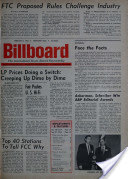
Then there is the music director whose nickname might very well be “Flip.” He frequently takes issue with the record companies on their choice of plug side. One in a while he may be right in his espousal of the flip, but most often he is wrong. Certainly there is no necessity for anyone to accept the infallibility of the record company’s selection of a preferred side. In a list of top hits for any year there are always a few items that were broken by a music director who disregarded the company’s promotion of the flip side. With most music directors the flip pick is an honest judgment. With others it is hero mania. Every music director owes his employer the obligation to use his own best judgment in selecting the side to be played. He should also he ready to admit his mistakes and to correct them. Sometimes, however, the music director keeps trying to prove his point in the face of mounting evidence to the contrary and permits his own stubborn ego to blind him to the facts.
IN ORDER TO BE EFFECTIVE the music director must know his market. While a majority of hit records do well in all areas, certain artists and certain musical sounds tend to do better in one city than in another. An awareness of local preferences is essential in guiding the music director’s selection of new material. Even though record sales are the yardstick by which the music director’s success is measured. his prime concern is not with selling records but
with station ratings. He may he tempted to “do a favor” for his favorite promotion man, but it is no favor to his employer to allow personal favoritism to interfere with the best possible programming. It is worthy of note that the most successful radio stations all have top-notch music directors. Whatever they are paid, they are well worth it. END
___
(Information and news source: Billboard; February 8, 1964)
![]()